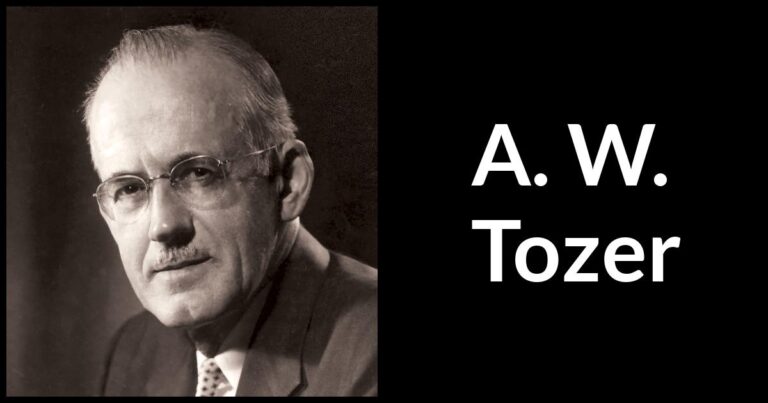
Acts 12:4 is a significant verse in the New Testament that holds deeper meanings related to Easter and the themes of liberation and divine intervention. This article explores what this verse teaches us about Easter, shedding light on its implications for faith, hope, and the celebration of resurrection.
Understanding Acts 12:4
Acts 12:4 describes an event where King Herod captures Peter and intends to execute him after Easter. The verse states, “So when he had arrested him, he put him in prison, and delivered him to four squads of soldiers to keep him, intending to bring him before the people after Passover.” This moment is pivotal as it illustrates the tension between human authority and divine will.
Peter is imprisoned during the time of Passover, which is closely linked to Easter. For Christians, Easter celebrates the resurrection of Jesus Christ, the ultimate victory over death and sin. The connection here is profound: just as Peter faced death, Easter symbolizes hope and resurrection. It’s a reminder that no matter how dire our circumstances may appear, there is always hope for liberation and new life.
The Significance of Easter
Easter is not just a day on the calendar; it represents the core of Christian belief. It commemorates the resurrection of Jesus, which is fundamental to the faith. The resurrection signifies victory over sin and death, providing believers with the assurance of eternal life. In Acts 12:4, Peter’s imprisonment mirrors the grave situation from which Jesus emerged victorious.
The significance of Easter is layered with themes of renewal and hope. Just as Jesus was raised from the dead, believers are reminded that their struggles and trials are not the end. The message of Easter encourages Christians to look beyond their current challenges, much like Peter did while awaiting his fate in prison.
Peter’s Imprisonment: A Symbol of Struggle

Peter’s imprisonment serves as a stark reminder of the struggles faced by early Christians. This period was marked by persecution, and many believers found themselves in dire circumstances. In this context, Peter represents all those who face oppression for their faith.
What does Peter’s experience teach us about our struggles? It reveals that even in moments of despair, faith can sustain us. Peter did not lose hope while imprisoned, which is a powerful message for believers today. Like Peter, many individuals face their own prisons—be it addiction, hopelessness, or fear. Easter symbolizes the possibility of breaking free from these chains, reminding us that liberation is possible through faith.
Divine Intervention: The Role of Prayer
Acts 12 also highlights the importance of prayer during times of crisis. While Peter was imprisoned, the church was earnestly praying for him. This communal prayer is crucial as it emphasizes the power of collective faith.
Prayer acts as a lifeline, connecting believers to God and each other. In the narrative, God intervenes dramatically, sending an angel to free Peter from prison. This event shows that divine intervention often occurs in response to fervent prayer. The connection to Easter is clear: just as God intervened in Peter’s life, He intervened in history through the resurrection of Jesus.
When believers gather to pray, they are not only seeking help but also reinforcing their faith in God’s power to change situations. This Easter, as families and communities come together, the act of prayer can be a unifying force, reminding everyone of their shared hope and belief in divine possibilities.
Hope Amidst Despair
Acts 12:4 also teaches a crucial lesson about hope. In the face of impending doom, Peter remained hopeful. This hope is a central theme of Easter. Jesus’ resurrection from the dead offers believers assurance that despair is not the end of the story.
The world can often feel overwhelming, filled with challenges and darkness. However, Easter reminds us that light can emerge from darkness. The story of Peter’s release from prison serves as a metaphor for the hope that exists in the believer’s life. It assures us that even when life feels confining, the promise of new beginnings is always within reach.
Hope is not merely wishful thinking; it is an active trust in God’s promises. Just as Peter trusted that God could deliver him, believers today can hold onto that same hope, especially during difficult times. Easter is a celebration of this redemptive hope, encouraging all who believe to trust in God’s timing and power.
The Community of Believers

Another vital lesson from Acts 12:4 is the importance of community among believers. The church was actively praying for Peter, showcasing the strength found in unity. Community plays a significant role in the Christian faith, especially during challenging times.
Easter is not just a personal celebration but a communal one. Churches around the world gather to celebrate the resurrection, reinforcing the belief that faith is a shared experience. The support and encouragement from fellow believers can make a tremendous difference in overcoming personal struggles.
In a world that often isolates individuals, the message of Easter is a call to come together, support one another, and celebrate the hope that faith brings. The collective celebration of Jesus’ resurrection serves to strengthen bonds within the community, allowing believers to uplift each other in times of need.
The Power of Resurrection
Acts 12:4 ultimately points to the power of resurrection, a theme that is central to Easter. Just as Peter was freed from prison, the resurrection of Jesus signifies the ultimate triumph over death. This power is accessible to all believers, offering a promise of life beyond earthly struggles.
The resurrection is a transformative event that changes lives. It reminds believers that death does not have the final say. The same power that resurrected Jesus is available to transform hearts and circumstances. This Easter, believers are invited to embrace the resurrection’s power, allowing it to influence their lives positively.
The act of celebrating Easter is a declaration of faith in this transformative power. It is an acknowledgment that, through Christ, nothing is impossible. The hope that arises from the resurrection encourages believers to live boldly, pursuing their God-given purpose despite challenges.
Conclusion
Acts 12:4 teaches us profound lessons about Easter. It highlights themes of struggle, hope, divine intervention, and the power of community. Just as Peter faced imprisonment, believers today encounter their own challenges. Yet, through prayer and the support of the community, they can experience liberation and renewal.
Easter serves as a powerful reminder of the resurrection’s hope. It encourages believers to trust in God’s plan and timing, knowing that even in the darkest moments, there is always the possibility of new life. The story of Peter’s deliverance is a testament to the transformative power of faith. This Easter, let us celebrate not only the resurrection of Jesus but also the hope and freedom it brings to our lives.
FAQs
What does Easter symbolize for Christians?
Easter symbolizes the resurrection of Jesus Christ and the victory over sin and death. It represents hope, renewal, and the promise of eternal life for believers.
How can prayer impact our lives during difficult times?
Prayer can provide comfort, strength, and guidance during challenging moments. It connects individuals to God and fosters a sense of community among believers, encouraging collective support.
Why is community important in the Christian faith?
Community is vital in the Christian faith as it offers support, encouragement, and accountability. Gathering with other believers strengthens faith and fosters a sense of belonging.
What can we learn from Peter’s experience in prison?
Peter’s experience teaches us about the power of hope and faith in dire circumstances. It shows that even when faced with challenges, believers can trust in God’s ability to deliver them.
How does the resurrection of Jesus affect believers’ lives today?
The resurrection offers believers hope and assurance of eternal life. It empowers them to overcome challenges, knowing that they have access to the same transformative power that raised Jesus from the dead.






